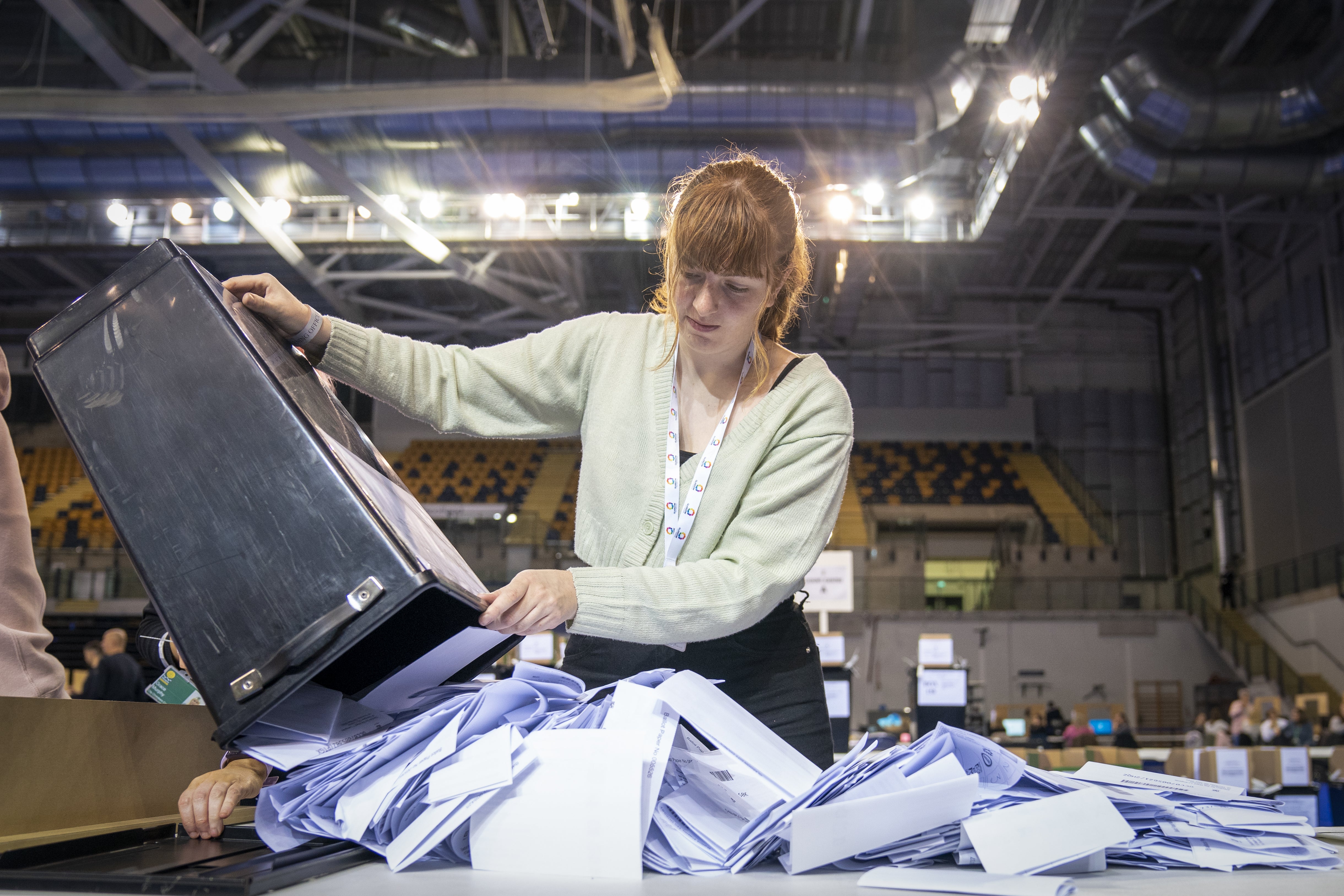Blackford: Scottish voters have sent very clear message to Boris Johnson
The Tories have suffered at the polls in the local elections, with their vote share dropping my more than 10% in multiple wards across the country.

Your support helps us to tell the story
From reproductive rights to climate change to Big Tech, The Independent is on the ground when the story is developing. Whether it's investigating the financials of Elon Musk's pro-Trump PAC or producing our latest documentary, 'The A Word', which shines a light on the American women fighting for reproductive rights, we know how important it is to parse out the facts from the messaging.
At such a critical moment in US history, we need reporters on the ground. Your donation allows us to keep sending journalists to speak to both sides of the story.
The Independent is trusted by Americans across the entire political spectrum. And unlike many other quality news outlets, we choose not to lock Americans out of our reporting and analysis with paywalls. We believe quality journalism should be available to everyone, paid for by those who can afford it.
Your support makes all the difference.Scottish voters have “sent a message” to Boris Johnson and his Conservatives, SNP Westminster leader Ian Blackford has said.
The Tories have suffered at the polls in the local elections, with vote share in a number of wards across Scotland dropping by more than 10%.
One Scottish Tory frontbencher described the early results as “disappointing”, claiming part of the reason was the partygate saga.
I think people in Scotland have made it very clear that they want no more of this from Boris Johnson and his Conservatives
Speaking to the BBC, Mr Blackford said: “The important story from Scotland is the fact that the Tories are being rejected.
“Their vote is down and I think what really is important today is that the voters have sent a message to Boris Johnson.
“I think there’s two things that count; one is of course the cost-of-living crisis – more needs to be done, and the other issue is partygate.
“I think people in Scotland have made it very clear that they want no more of this from Boris Johnson and his Conservatives.”
He added that voters had sent a “very clear message” and “we can celebrate the fact that the Tories have got the message that we expected”.
Speaking to the PA news agency from the election count in Edinburgh, Scottish Tory frontbencher Miles Briggs said: “We knew it was going to be challenging, we’ve known that for a couple of weeks now. I’m personally disappointed with the results which have come in so far.
“Some seats which we won five years ago we are now holding, which is really good to see.
“There’s some good news but it’s really disappointing.
“From the work I did yesterday with my activists here in Edinburgh, it’s quite clear that people weren’t going to go to vote.
“They were protesting voting by not going to any other party, or when they’ve gotten their postal votes they hadn’t returned them and put them in the bin.
“It has depended on how people want to send a message. You either go and vote for someone else or you don’t vote at all.”
When asked if partygate had impacted Tory support, he said: “Yes I think that’s part of it. You can’t deny that and I think speaking to people yesterday they certainly weren’t happy with the actions of the Prime Minster and his team.”
However he said he “thoroughly expects” incumbent Tory councillors in Edinburgh to be returned.
“We will lick our wounds and move on,” he added. “Let’s look back five years ago, that was a tremendous election and one of the most exciting elections I’ve been involved in with the Conservatives.”
Meanwhile, Glasgow City Council leader Susan Aitken has been re-elected – but the SNP councillor fell behind Greens candidate Holly Bruce in first preference votes in the Langside ward.
Scottish Labour has taken overall control of West Dunbartonshire Council – unseating a minority SNP administration.
The party returned 12 councillors, four more than the previous vote, compared to nine SNP councillors – a drop of one.
After the 2017 election, no party held a majority in any local authority area in Scotland.
The SNP has returned a majority in Dundee, increasing its representation by one to 15 compared to 2017.
As of 3.30pm, 13 councils had finished counting, with three being controlled by independents and nine without any clear majority.